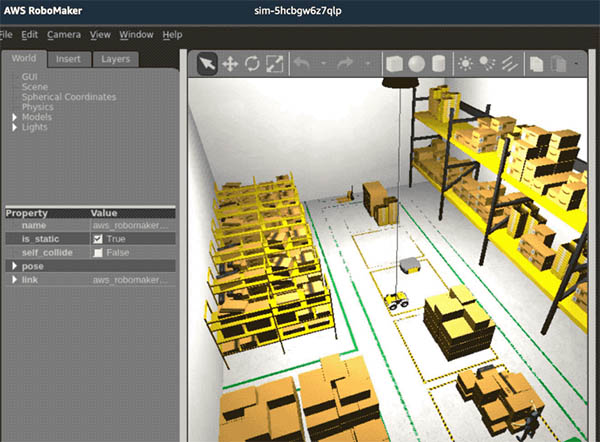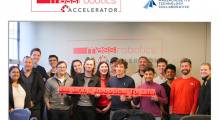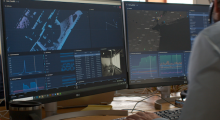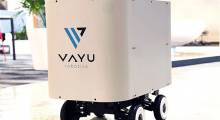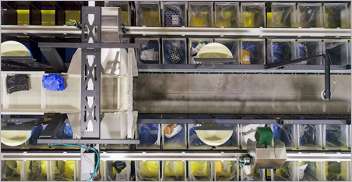Helping startups succeed, from inception to initial public offering, has been an integral part of Amazon Web Services (AWS) since our beginning. Today, more startups build on AWS than any other cloud provider, and many of our customers started using AWS at an early stage to help scale their business and drive innovation.
For example, Lunar Outpost, a pioneer in lunar surface robotics, uses AWS RoboMaker to test and validate robotics software in a simulated lunar environment, enabling it to speed up robot delivery and reduce software bugs in deployment. Let's look at how AWS Robotics is helping robotics startups use cloud technology to establish a scalable infrastructure for building, testing, and managing robots.
Robots are being used for increasingly advanced use cases, equipped with artificial intelligence to navigate and perform tasks autonomously in industries such as manufacturing, logistics, consumer goods, healthcare, and agriculture. These advanced use cases require innovative solutions. Robotics startups equipped with the right set of tools can drive fast-paced innovation and improve the breadth and depth of available robotics systems.
AWS Robotics Startup Acceleration Program
To support the robotics startup community, AWS invited early-stage robotics startups for a three-day program to learn and build with AWS Robotics business and technical experts. The AWS Robotics Startup Acceleration program was held virtually from Aug. 17 to 19, 2021, with founders and technical executives from robotics startups.
“Start-ups are the driving force of innovation in robotics,” said Eric Anderson, general manager of AWS Robotics. “We designed this program to provide start-up founders resources to scale their business and remove costly and time-consuming undifferentiated heavy lifting.”
The program was announced in June 2021, and received interest from more than 250 startups for an information session held on June 25. The program was open to early-stage robotics hardware and software startups with less than $1 million in revenue and fewer than 25 employees.
In early August, AWS Robotics selected nine robotics startups, which represented a variety of applications and geographical locations from around the world. Five came from North America; two from Latin America; one from Europe, the Middle East and Africa; and one from India.
The startups selected included Brisa Robotics, Cosmos Robotics, Flo Mobility, Future Acres, Northstar Robotics, Rapid Robotics, Rezzi, Robotec Solutions, and Rooomie. They were selected based on their potential to benefit from cloud services and technical readiness to implement AWS.
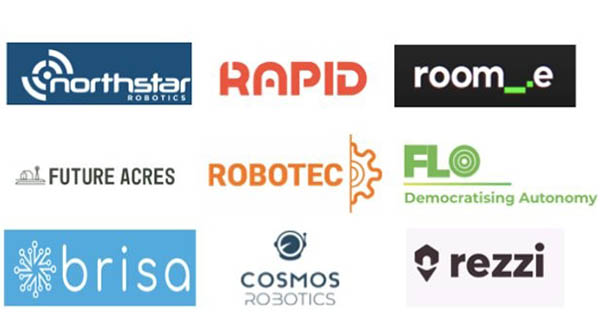
Knocking down customer barriers
AWS Robotics designed the program’s content to help start-ups solve common technical and business challenges to scaling robotics fleets. To address customers’ pain points and barriers to growth, a team of AWS Robotics Solutions Architects developed technical content on a range of topics to help customers remove undifferentiated heavy lifting including how to connect robots to the cloud, provision software over-the-air, simulate robots, and train machine learning models in the cloud.
Prior to the program, Suma Reddy, CEO of Future Acres, was looking for the best solutions to help scale from a prototype to a fleet of robots.
“Our mission at Future Acres is to develop sustainable, advanced, and intelligent robotics tools for farms,” said Reddy. “As we think about how to scale, we are excited to increase our usage of AWS RoboMaker Simulation for quicker testing and scaling and to facilitate sales motions through simulated demonstrations.”
“For our ambitious roadmap, we’re excited to explore how to leverage the open-source tools, cloud services, and network of technology partners that AWS can provide,” Reddy added.
The program also provided guidance to address common business problems, topics ranged from building an innovation culture to thinking about go-to-market channels for startups and lessons in fundraising and venture capital relationships.
“I found the session about Amazon’s unique innovation culture to be the most valuable and gave our teams a lot to think about,” said David Bensoussan, founder and CIO of Brisa Robotics. “As we are technical founders, mostly focused on trying to solve technical challenges, we don’t often take the time to think deeply about those subjects, so it gave us an excellent starting point.”
The program also featured robotics experts such as James Gosling, AWS distinguished engineer, and Jiren Parikh, CEO of Ghost Robotics. They shared their years of experience building their robotics business.
“It’s been a five-year journey to take a robotics innovation and transform it into a product that meets our customer needs.” Parikh said. “At first, we wanted our robot to do everything, but we learned to recognize where the demand was coming from and tailored our product accordingly.”

About the authors
Grace Reed is the product marketing manager for AWS RoboMaker. This blog is reposted with permission from AWS. Robotics startups looking to learn more about how they can use cloud computing and AWS can contact the organization at [email protected].

Pulkit Kapur is a business development manager for robotics and autonomous systems at AWS. He previously worked at MathWorks as industry lead for robotics, responsible for global business development and product roadmap.
Prior to that, Kapur worked at iRobot as a product manager, launching consumer robots globally. He has a master’s in mechanical engineering with a specialization in robotics from the GRASP Lab at University of Pennsylvania in Philadelphia. Kapur has over 10 years of industry experience in the field of robotics and autonomous systems.
Article topics
Email Sign Up

